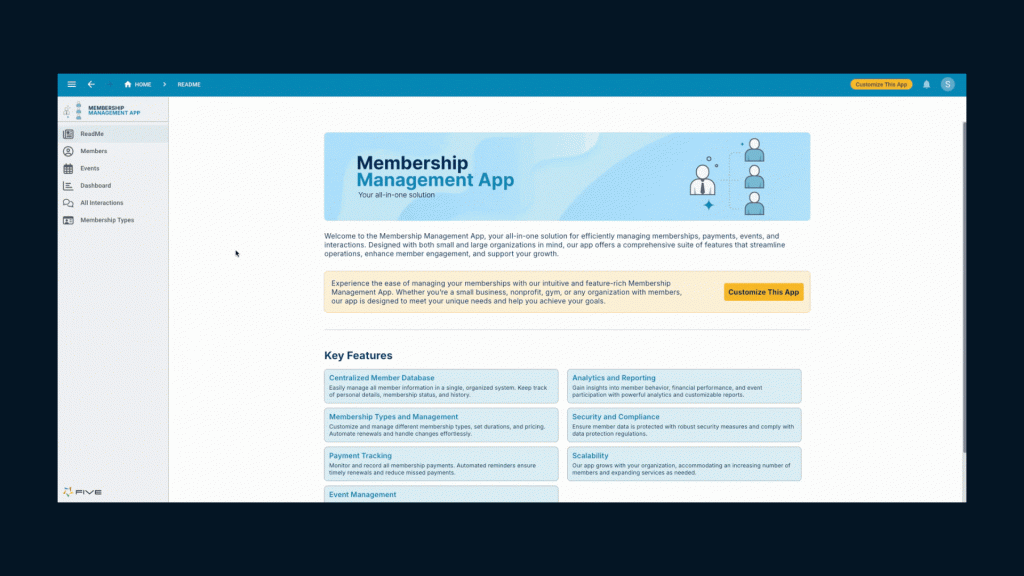What Is The Best Database For Web Applications?
Full Guide on The Best Database For Web Applications
Choosing the right database for your web application is one of the most important decisions.
With numerous options available, from traditional relational databases to modern NoSQL solutions, its essential to understand the strengths and weaknesses of each type.
In this article, we’ll explore some of the most popular database options for web applications, comparing their features and drawbacks.
Why Do You Need a Database?
Database’s are the backbone of web apps. They provide a reliable way to store data permanently and are optimized for quick and efficient data retrieval.
But why would you need a database?
Unlike your computer’s memory, which can forget everything when it’s turned off, a database remembers. Databases ensure that your information is preserved and can be accessed at any time. This makes them ideal for storing critical data such as customer details, inventory records, order histories, and employee information.
One of the primary reasons databases are integral to web applications is their ability to retrieve data quickly. They are designed to handle large volumes of data while maintaining high performance. Whether you’re searching for a specific customer order or pulling up the latest sales figures.
This ability to quickly access and analyze data can give you a significant edge over competitors.
Types of Databases You Could Use
Relational Databases (SQL)
Relational databases are akin to an organised spreadsheet with rows and columns, each cell containing a specific piece of information.
That’s the essence of a relational database. These databases use the Structured Query Language (SQL) to manage and retrieve data. They’re the go-to choice for applications that require strict data consistency, querying capabilities, and data integrity.
Popular relational databases include:
- MySQL: It is the go-to choice for many web applications.
- PostgreSQL: Ability to handle large datasets and high-concurrency workloads makes it a favorite.
- Microsoft SQL Server: Developed by Microsoft, designed to cater to the needs of enterprises.
NoSQL Databases
NoSQL databases, short for “not only SQL,” break free from the rigid structure of relational databases. They offer flexibility, making them ideal for handling massive amounts of unstructured or semi-structured data. Popular choices include MongoDB and Cassandra.
What Is The Best Database For Web Applications?
Among the many options available, MySQL stands out as one of the most popular choices, especially when combined with an intuitive online application builder like Five.
There’s a reason why 30-50% of web applications use MySQL as their database. This includes popular platforms like WordPress, Drupal, and many custom web applications.
Relational databases like MySQL are powerful because they not only store data but also manage the relationships between different pieces of information. This is particularly important in web applications where various entities are often interconnected. For example, in an e-commerce web application, customer information is linked to orders and products, creating a relationship that MySQL can efficiently manage.
MySQL facilitates this by allowing the creation of structured databases with tables, fields, and relationships. Users can query, update, and manage this data through SQL (Structured Query Language). Here’s a simple example: a patient database where patients are linked to appointments and bills, illustrating how entities interact within a relational framework.

For those who aren’t technically inclined, building a database from scratch can be a daunting task. The complexities of designing a database structure, writing SQL queries, and managing data relationships require a significant investment of time and learning. This is where application builders like Five come into play, offering a much more accessible solution for creating a MySQL database.
Five is an online application builder specifically designed to simplify the process of creating and managing MySQL applications. It makes SQL accessible even to those with minimal technical expertise by providing a user-friendly interface. Every application developed in Five comes with its own integrated MySQL database, allowing users to focus on what matters most—building their web application—without getting bogged down in the technical details of database management.
While creating a MySQL web application with Five isn’t entirely effortless, it is significantly easier than spending countless hours learning various coding frameworks and languages.
With Five, you can:
- Set up a MySQL database in minutes: The platform guides you through the process, making it simple and fast.
- Create a login-protected, user-friendly interface: Whether on a desktop, tablet, or mobile device, your application will work seamlessly across platforms.
- Import existing data easily: You can import data from Excel, Google Sheets, or CSV files directly into your MySQL database, helping you get started quickly without manual data entry.
In addition to these features, Five offers the flexibility to create custom business logic with code, generate PDF documents, and visualize your data through custom charts and dashboards. This means you can build a fully functional, professional-grade web application with a MySQL database at its core, all without needing extensive technical knowledge.
Get free access to Five today and start building your data-driven web application.

Other Database Options For Web Applications
When choosing the best database for your web application, MySQL is a strong contender, especially when combined with Five. However, it’s important to consider other database options as well.
PostgreSQL
PostgreSQL is another popular relational database known for its advanced features and strong support for complex queries. It’s highly extensible, allowing developers to add custom functions, data types, and more. PostgreSQL excels in applications that require high concurrency and complex data models. However, it comes with a steeper learning curve compared to MySQL. For those who prefer simplicity without sacrificing power, MySQL likely remains a top choice, especially when paired with Five.
MongoDB
MongoDB is a NoSQL database that stores data in a flexible, JSON-like format. It’s well-suited for applications with unstructured or semi-structured data, such as content management systems or real-time analytics. However, it lacks the robust relational capabilities of MySQL, which can be crucial for applications where data relationships are important.
SQLite
SQLite is a lightweight, serverless database that’s embedded directly into applications. It’s ideal for smaller projects, mobile apps, or applications with low to moderate traffic. SQLite’s simplicity is its biggest strength, but it’s not designed for large-scale web applications.
Amazon DynamoDB
DynamoDB is a fully managed NoSQL database offered by AWS, known for its high scalability and fast performance. It’s a great choice for applications that require low-latency data access, such as gaming or IoT applications. Five also integrates with DynamoDB meaning you can connect to your database and build your web application based on your DynamoDB database data.
Summary
MySQL remains one of the top choices for web applications. And when combined with a tool like Five, MySQL becomes even more accessible and efficient. Five allows you to tap into the potential of MySQL without the steep learning curve, making it easier to build and manage a web application.
Get free access to Five today and start building your data-driven web application.


